Top: A worker labels logs in Akewa’s log field in the Beyan Poye Community Forest, Margibi County. Photo credit: Akewa via Facebook
By Emmanuel Sherman and James Harding Giahyue
Editor’s Note: This story is the first of a two-part series on Akewa Group of Companies’ operations in Liberia, focusing on the lapses of the Forestry Development Authority. The second part will emphasize the shortcomings of communities in which the company has operated.
VARGUAY, Grand Cape Mount – In 2019, Gola Konneh Community Forest signed a logging agreement with Akewa Group of Companies. The parties agreed that the company would log in to the community forest for 15 years and pay the community fees for the use of the land and the felling of timbers. The company promised to build schools, clinics and roads.
But nearly three years after, the deal has not worked as the community had expected. None of the projects have been conducted despite it felling over 4,615 cubic meters of logs in the 49,179-hectare forest, according to documents we obtained. Akewa owes the villagers US$86,081 in land rental and log-harvesting fees.
“Nothing is going on,” said David Wiazamuah, an elder in Varguay, the headquarters of Gola Konneh community forest leadership. Wiazamuah and other villagers were hopeful that the deal was going to help develop the district.
“I feel bad,” Wiazamuah told The DayLight in an interview.
Gola Konneh is one of three communities Akewa—owned and run by Nigerian businesswoman Abigail Funke Odebunmi— has signed agreements with and has failed to live up to. It has an agreement with the Beyan Poye Community Forest in Margibi County, and another with Compound Number One B in Grand Bassa County as a part of a logging contract, known across the industry as timber sales contract area three (TSC A3). Akewa owes all three communities a combined land rental and a timber-harvesting fee of US$159,526, dozens of social development projects, and thousands of United States dollars connected to their respective agreements over a period of nearly 14 years, according to available, official data.
In March 2017, two years before its Gola Konneh deal, Akewa signed the agreement with Beyan Poye, which covers 33,338 hectares of forestland in the Gibi District, promising to build roads, schools, clinics and handpumps. Since then, it has not implemented a single project, except a handpump. It owes the community US$63,749 in land rental and log-harvesting fees for four years. Throughout this period, the company has only paid the community US$2,900 for logs it has felled there. However, Akewa exported 3,506 cubic meters of logs in 2018 from Beyan Poye, according to the Liberia Extractive Industries Transparency Initiative (LEITI). That means it should have paid the community US$7,888.50 on that shipment alone, according to the agreement.

Following nearly five years of rigmarole, the community leadership has decided to go to court to nullify the agreement.
The situation with Compound Number One under TSC A3 is even worse. (In Liberian forestry, the FDA awards TSCs and companies are required by law to sign a social agreement with villagers who manage the forest). Akewa signed the social agreement with the community on June 27, 2008, but has only paved a stretch of dirt road, leading into its contract area. The company owes villagers in the Compound Number One area US$9,696 for at least 11 years. Meanwhile, Akewa did not pay any fees for harvesting, according to locals. The DayLight could not independently verify this and other claims due to the FDA’s refusal to grant our request for Akewa’s official payment records and log-shipment dataset, public documents under the National Forestry Reform Law and the Freedom of Information Act of 2010. Paradoxically, C. Mike Doryen, FDA’s managing director, is the chairman of the board of directors of the LEITI, established to publish payments in the extractive sector. We have written the Board of Directors of the FDA for redress and will update this story once we get the information we seek.
Akewa’s failure to comply with forestry laws and regulations would not have been the case if the Forestry Development Authority (FDA) had exercised its functions as the regulator of the sector. The DayLight’s investigation into Akewa’s track record in the industry, dating as far back as 2008, shows the FDA watched it flout various provisions of laws and regulations with impunity across all of its agreements. Ignoring legal requirements, FDA repeatedly approved a new agreement for the company, despite the firm’s poor record with a previous one.
The irregularities associated with the company’s operations have denied the three rural communities much-needed benefits from their forest resources, a key component of Liberia’s postwar forestry reform agenda.
“The company lied to us,” said Oretha Dargbeh, a member of the community forest development committee (CFDC) of TSC A3 in Compound Number One.
Compound Number One Violations
Primarily, Akewa majority Nigerian shareholding violates the National Forestry Reform Law of 2006. Under the law, a company with a timber sales contract—covering at most 5,000 hectares—must have at least 51 percent of its shares held by Liberians. The law even mandates the FDA to report to the Legislature once in five years on the impact of that portion of the statute on the Liberian economy. All of Akewa’s shares are held by Nigerians—Odebunmi 60 percent, Chief Kenneth Amazeika 20 percent and Timothy Odebunmi 20 percent. Furthermore, its 2021 business registration reflects it is Nigerian. It was unclear whether the company met that requirement when it obtained TSC A3 in 2008, as Akewa’s article of incorporation does not show its initial shareholders. Nevertheless, the company’s current ownership status indicates Akewa was barred under the “Liberianization” clause of the law. The FDA should have canceled the contract at least as early as 2010, the year Akewa first amended its article of incorporation, leaving it a majority-Nigerian-shareholding corporation. The company initially registered at the Liberian Business Registry on June 29, 2009, proving it did not have a business registration certificate when it obtained TSC A3. That is a contravention of the Business Corporation Act of 1976.
In the first place, Akewa’s TSC should not have lasted for more than five years. Legally, a TSC runs for three years and can be extended by two. That means all 11 TSCs, including Akewa’s, which covers a combined 50,000 hectares, overstayed their legal periods. A report by the Civil Society-led Independent Forest Monitoring Coordination Mechanism found logs worth nearly US$2.5 million were harvested outside an adjacent contract area, with the FDA taking inadequate actions against the companies involved. It was only in September last year that the FDA halted logging operations in all TSCs, according to Andrew Zelemen of the National Union of Community Forest Development Committee (NUCFDC), who attended a stakeholders’ meeting in November, where it was announced.
Beyan Poye was Akewa’s second ill-fated spell in Margibi County, though. Back in 2012, it was involved in the infamous Private Use Permit (PUP) Scandal, in which some 2.5 million hectares of forests, or 23 percent of the country’s landmass, were illegally awarded to logging companies. Ironically, Beyan Poye covers 22,163 hectares of Akewa’s illegal PUP. Then-President Ellen Johnson Sirleaf signed an executive order canceling all PUPs after an official inquest, and the moratorium has not been lifted. That investigation found that the people of Gibi did not consent to the company’s use of their land, the Akewa PUP overlapped with a private property and was never resolved. The company did not have a business plan—a major prequalification requirement that provides information on companies’ financial and technical capacity.
Beyan Poye Violations
Amid its involvement in the scandal, coupled with outstanding payments and failure to live up to the social agreement in connection with TSC A3, the FDA approved Akewa’s agreement with Beyan Poye on March 25, 2017, breaking, once more, a number of provisions of forestry laws and regulations.
First, the Beyan Poye did not have a community forest management plan when the FDA approved its agreement with Akewa. That was a violation of the Community Rights Law with Respect to Forest Lands, which mandates companies to have the plan in order to log in a community forest. (Forest communities enter agreements with companies and FDA approves them).
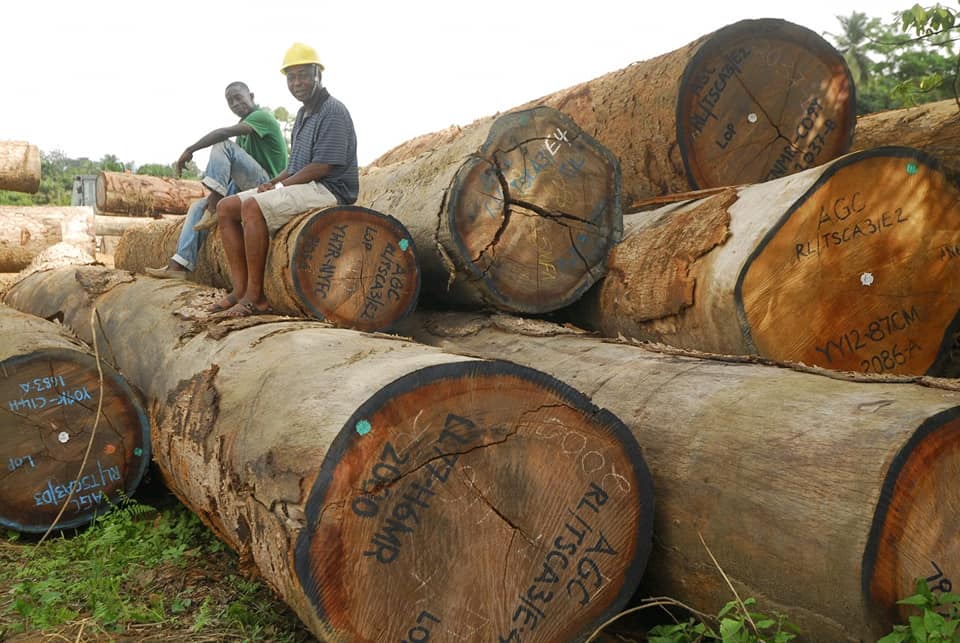
And while Akewa remained hugely indebted to Beyan Poye, the FDA has continued to sanction the company to ship timbers from that community forest. That is a breach of Forestry Development Authority Ten Core Regulation (107), which calls for firms to be clear regarding all forest-related dues before export. In fact, that was sufficient ground to terminate the agreement per the National Forestry Reform Law.
Gola Konneh Violations
The FDA repeated its shortcomings in the Akewa-Gola-Konneh deal, ignoring Akewa’s debt to Beyan Poye and Compound Number One. FDA has approved two shipments from the forest—one each in November last year and another earlier this month. Being clear of all forest-related fees is not only a pre-shipment requirement but also a pre-qualification requirement for a new contract as per Resolution 103-07.
But now Akewa was about to heighten its notoriety.
In February 2019, just a month before the FDA’s approval of the agreement, Odebunmi was accused of using a fake tax clearance to bid for the 49,179-hectare forest. A Liberia Revenue Authority (LRA) inquiry later found her guilty as accused. “I am pleased to inform you that the LRA having reviewed all of the tax clearances presented, found Akewa Group [of Companies] liable of issuing fake tax clearances and to the effect that the tax clearances issued were not LRA’s original tax clearances,” Varfee Holmes, LRA’s communication, media and public affairs officer, said in an emailed reply to The DayLight. We had filed a freedom of information (FOI) request for findings of that investigation, which had not been made public.
There was no evidence that the LRA took any actions against Odebunmi. A lawyer, who spoke to us on condition of anonymity, said LRA should have fined her under the Revenue Code.
Having used a fake tax clearance, the FDA should have denied Akewa from participating in the bid under Regulation 103 – 07, which disqualifies representatives of companies convicted or penalized for forgery, or unfair competition. Instead, Akewa went on to defeat five other companies—Greenwood Resource Company, Auzy International Limited, Master Loggers and Sing Africa Plantation Liberia Limited—and won the bid. A month later, the deal was in full swing, giving the company a year grace period to pay land rental fees and four months after harvesting logs there. The FDA ought to have issued a fine or inform the Ministry of Justice for a possible lawsuit against the company as per logging laws. Forgery is a criminal offense under the New Penal Law of Liberia.
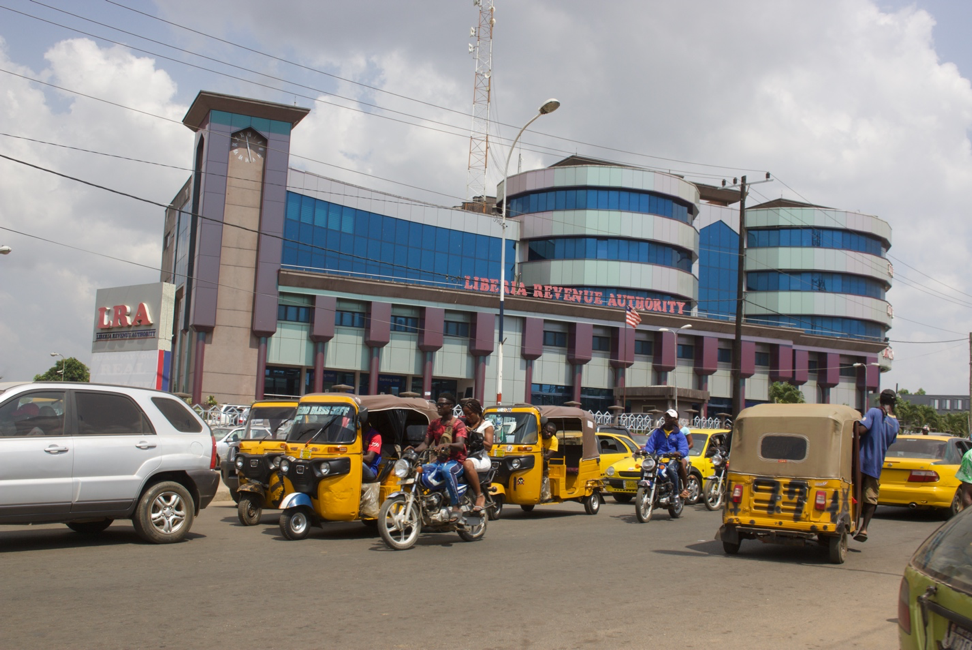
Revenue over Rightfulness
While communities have struggled to get their just benefits from Akewa over the years, it has paid the government with ease. The company paid the government US$1,618,960 between fiscal years 2009/2010 and 2018/2019, according to The DayLight’s breakdown of the LEITI’s reports of those periods. The forestry sector generated US$8,148,559, the third-highest revenue (10.23%) in the fiscal year 2018/2019, according to the latest LEITI report.
Civil society actors criticize the FDA for downplaying communities’ benefits while ensuring companies pay the government’s taxes and royalties.
“The FDA is grossly negligent, prioritizing the central government above communities,” Jonathan Yiah, a lead forest campaigner at the Sustainable Development Institute (SDI) told The DayLight in an emailed statement. “It is not forthcoming with accurate information about extraction by logging companies, which the companies are mandated to provide in order to assist communities to determine arrears of the companies.
“The FDA should improve its mandated oversight responsibilities by equally prioritizing government’s collection of fees and taxes along with communities,” Yiah added.
Efforts to get the FDA’s side of the story and other issues did not materialize. Following several failed visits and phone calls for an interview, The DayLight wrote a letter to Joseph Tally, its managing director for operations, on January 6 with queries. We attached a three-page questionnaire on all our concerns. We were scheduled for the interview on Tuesday, January 11 at 10:30 am but Tally rescheduled it to an indefinite date. We again visited the FDA headquarters in Whein Town, Paynesville but Tally insisted the entity’s commercial department would get back to us at their own time. We had first contacted William Pewu, the head of that department, on the matter as early as in December last year.
Akewa did not respond to any of our queries for comments. Odebunmi initially agreed to speak with us on December 11—after many failed attempts—and then declined a formal interview when we finally met her. We emailed her our questions as she had requested but she still did not respond.
This story is a part of The DayLight’s Forest Accountability and Transparency Reporting Series.

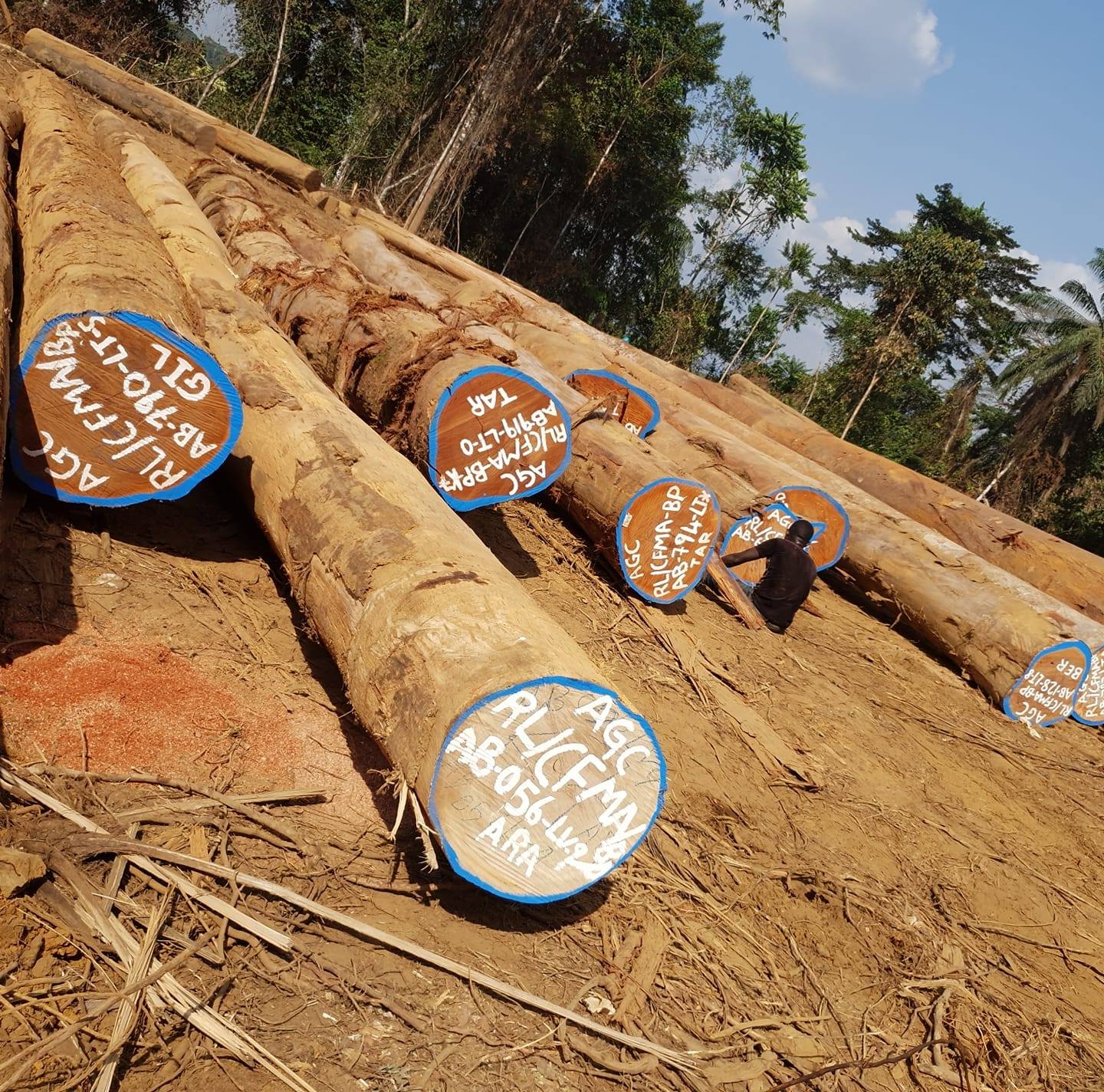
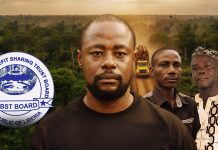

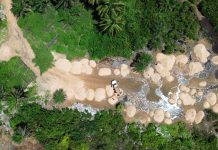
Facebook Comments